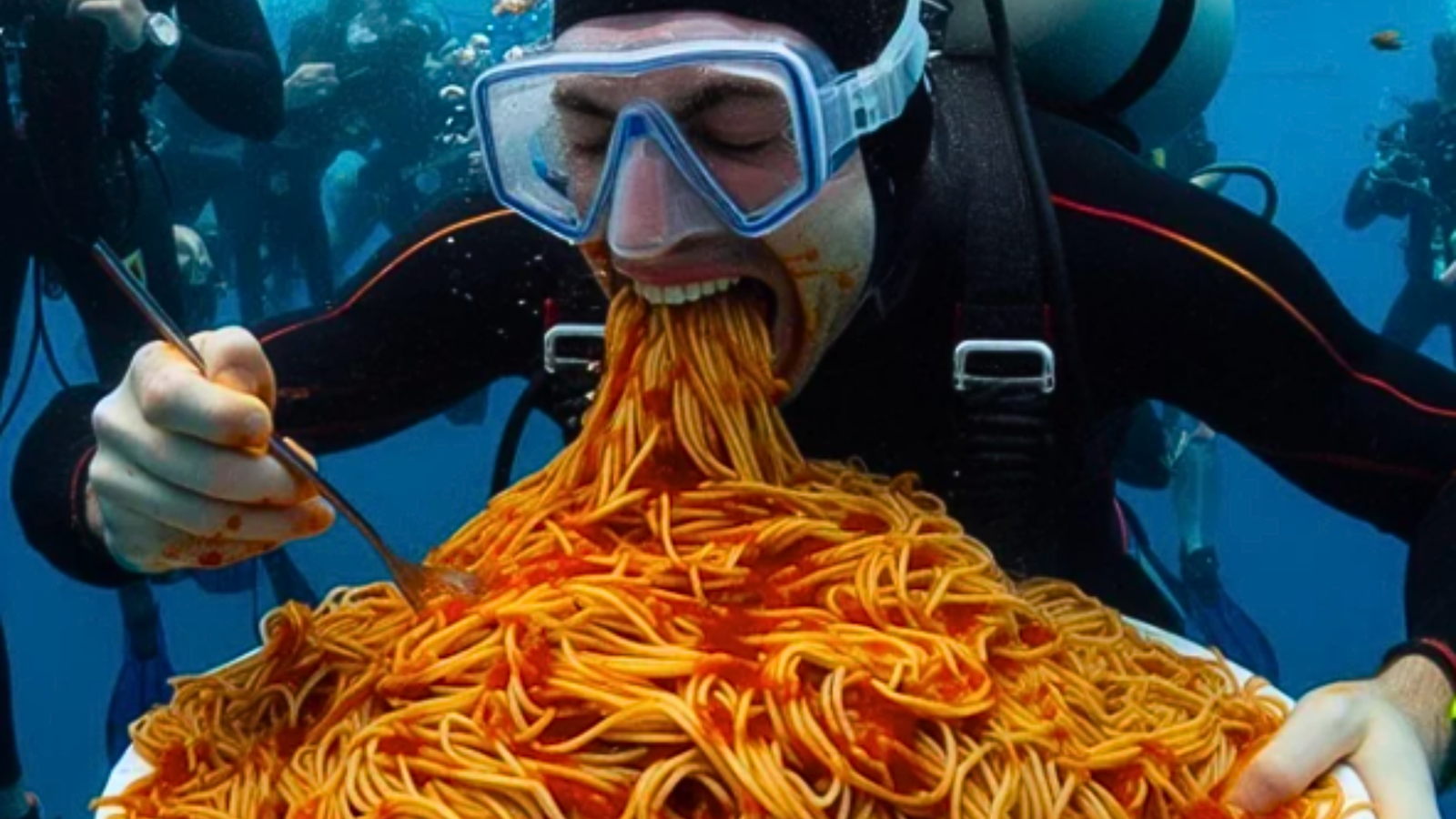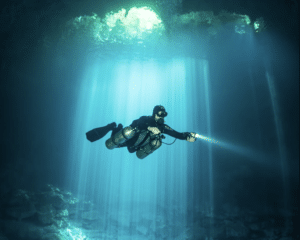Content:
- Why It’s Important to Eat Right Before Diving
- What to Eat Before a Dive
- What to Avoid Eating Before Your Next Dive
- Top 5 FAQs About Eating Before Diving
- The Importance of Hydration

In this all-in-one guide, we’re diving into why eating right before a dive is a game-changer, what foods are a go, and what to avoid to ensure a smooth and enjoyable dive.
Why It’s Important to Eat Right Before Diving
Before plunging into the deep, it’s key to understand why eating properly plays a huge role in your safety and well-being underwater.
Eating right:
— Keeps Your Blood Sugar Steady: Low blood sugar can lead to dizziness, fatigue, and weakness, risking your ability to dive safely and effectively.
— Optimizes Hydration: Dehydration ups the risk of decompression sickness and can mess with your body’s ability to transport oxygen, leading to muscle cramps and dizziness while diving.
— Cuts Down Gas Production: Eating gassy foods can cause tummy troubles and discomfort during your dive.
— Prevents Poor Nutrition: A lousy diet can cause dizziness, confusion, and general discomfort, putting your safety and enjoyment at risk while diving.

What to Eat Before a Dive
Now that we know why a balanced diet is crucial, let’s dive into what foods are perfect before hitting the water:
— Proteins: Go for fish, chicken, tofu, or egg whites. These give you sustained energy and keep your blood sugar levels steady.
— Carbs: Oats, brown rice, or quinoa are awesome for slow-release energy, keeping you active and alert throughout the dive.
— Healthy Fats: Avocados, nuts, or olive oil offer lasting energy and protect your muscles during the dive.
— Fruits and Veggies: Packed with vitamins, minerals, and antioxidants, they keep you hydrated and healthy before and during the dive.
— Optimal Hydration: Drink plenty of water to stay hydrated. Skip the alcohol and caffeine, which can dehydrate you.
What to Avoid Eating Before Your Next Dive
To ensure a hassle-free dive, steer clear of certain foods that could cause discomfort:
— Fried or Greasy Foods: Avoid high-fat meals that are tough to digest and can cause stomach issues during the dive.
— Spicy or Irritating Foods: Spicy foods can up stomach acid and cause digestive problems, affecting your comfort underwater.
— Carbonated Drinks: Stay away from fizzy drinks to prevent bloating and tummy troubles during the dive.
— Alcohol: Drinking alcohol before diving ups dehydration risk and messes with your body’s oxygen absorption, leading to possible underwater accidents. Best to avoid it completely before diving.

Top 5 FAQs About Eating Before Diving
1. Is it okay to eat a heavy meal before diving?
It’s best to avoid heavy meals as they can cause discomfort and reduce agility underwater. Opt for light, nutritious meals instead.
2. Should I eat right before diving?
Eat at least one to two hours before your dive to allow proper digestion. Eating too close to dive time can lead to indigestion or cramps.
3. Can I have coffee before diving?
While caffeine gives a quick energy boost, balance it with good hydration to avoid dehydration.
4. Are there foods that help prevent seasickness?
Ginger is known to ease seasickness symptoms. Try ginger tea or supplements if you’re prone to feeling queasy.
5. Is eating chocolate before diving a good idea?
Chocolate has caffeine, so eat it in moderation. Dark chocolate with high cacao content offers antioxidants with less caffeine than milk chocolate.
The Importance of Hydration
To ace your diving performance, picking the right foods is crucial, but staying hydrated is just as important. Dehydration can lead to fatigue, cramps, and a higher risk of decompression sickness.
Make sure to drink plenty of water in the hours leading up to your dive and avoid too much caffeine or sugary drinks, as they can have diuretic effects that counteract necessary hydration.
Conclusion
Eating right before diving is key for a safe and enjoyable experience. By choosing the right foods and avoiding those that might cause issues, you can maximize your safety and fun while exploring the underwater world.
Dive in with confidence and enjoy your adventures to the fullest!



